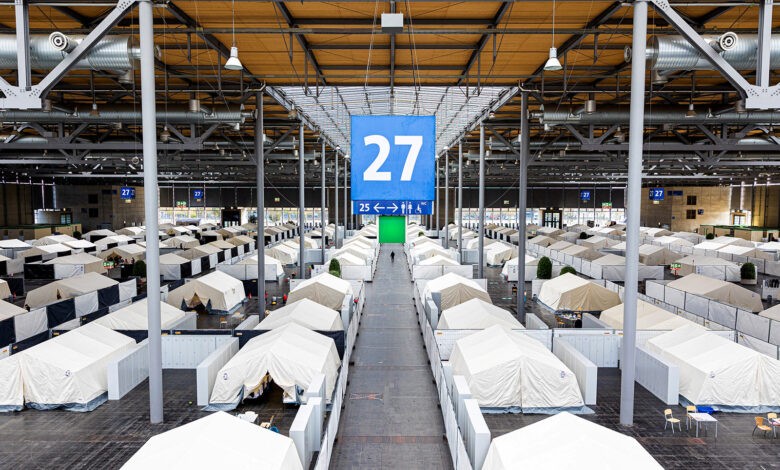Temporary housing at the old airport: how Ukrainians live in Berlin’s Tegel

Ukrainian refugees fleeing the war continue to find refuge in various countries, and Germany remains one of the main countries that receive them. A relatively high standard of living, access to social guarantees and developed infrastructure attract many Ukrainians. However, the reality of adaptation is often more difficult than it seems. Ukrainians face uncomfortable accommodation, language barriers, difficulties in integrating into society, finding housing and work, as well as challenges related to living conditions in shelters. One of the most famous examples is the refugee accommodation center in the former Berlin Tegel Airport. This is the largest such center in Germany, which has become a temporary home for thousands of people, mostly Ukrainians.
What does life look like in “Tegel”
About 40 modular buildings are located on the territory of the former airport, in which about five thousand refugees currently live. The complex has become a real “city within a city”, because more than one and a half thousand employees work here to ensure the functioning of this large-scale facility. Sports halls, nail salons, canteens, libraries, kindergartens, doctors and even small shops are available for residents.
Despite the wide range of services, many Ukrainians complain about the lack of personal space – 14 people live in one room. Living in large modules with separate rooms for a long time often causes conflicts, and the lack of individual spaces increases psychological stress. In addition, in some places there are problems with hygienic conditions, which causes additional dissatisfaction among residents.
Costs and challenges
The maintenance of the “Tegel” center costs the German budget half a billion euros per year. Initially, this center was considered as a temporary reception point for refugees, but due to the acute shortage of housing in Berlin, its operation is delayed. This creates additional financial and social pressure on the authorities.
At the same time, life in “Tegel” sheds light on the broader problems of the integration of Ukrainians in Germany. The local housing market, already oversaturated, cannot provide enough affordable apartments. This forces many to stay in temporary shelters, which gradually become permanent residences.
Prospects and opportunities
Despite the difficulties, Ukrainians in Tegel are trying to adapt to new conditions. Some residents have already started working in Germany, children attend local schools and kindergartens. Local authorities try to facilitate the integration process through language courses, vocational training and social programs.
“Tegel” has become a symbol of hospitality, but also a reminder of the challenges refugees face. This situation shows the need not only for temporary help, but also for long-term solutions for the integration of Ukrainians into European society. At the same time, it demonstrates the power of human endurance and the ability to adapt even in difficult conditions.
Despite all the difficulties, many Ukrainians in Tegel do not lose hope of returning home after the end of the war, but are currently trying to create a new life for themselves and their families in Germany.





